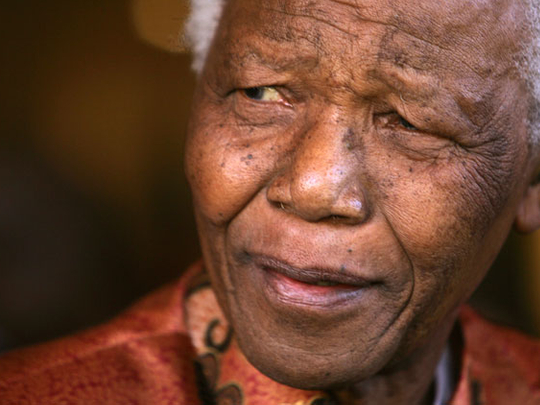
Dubai: Growing up as a white South African in a beachside suburb in Cape Town, I was completely sheltered from the human rights violations that were occurring in my country during apartheid.
For me and my friends, it was normal to only see black people occasionally passing on the streets or working low income jobs. I did have a few black friends, the children of the hired help.
When I was seven years old I had a very strange conversation with my father. I was on my way to our local beach with a friend, when he stopped us.
I remember staring in confused wonder as he attempted to explain to me that I could not take my friend to the beach because of the colour of his skin. The beach was for whites only.
At the age of twelve, while on holiday in New York, I was asked how I felt about apartheid.
To my memory, this is the first time I ever actually heard the word apartheid and I had no idea what it meant.
“You know, the law that says black people can’t live together with white people,” said the young girl questioning me. “Oh that, I think it’s terrible,” I replied.
Like many young South Africans, I spent my days playing sports and building forts, unaware of the oppressive regime I was living under.
The first time I heard the name Nelson Mandela was leading up to his release from prison in 1990. Many of my friends and their families were convinced that South Africa was on the verge of a civil uprising. I remember noticing that behind the hate speech of those in support of apartheid, there was always this tremendous fear.
In the small, gloomy apartment of a friend’s family, I watched Mandela take his first steps to freedom on a tiny black and white TV that kept flickering from bad reception. My first impression was: “What a happy man.”
As apartheid was dismantled and the Truth and Reconciliation Commission brought to light many of the horrendous acts that had been carried out by the South African government, I began to understand the fear that I had seen in so many adults growing up. They knew what was being done and they were convinced that black people would take power and seek vengeance. After all, oppressive regimes have fallen violently at the hands of the people throughout history. Well, Nelson Mandela chose a different path for South Africa.
For me, Nelson Mandela will always be a symbol of possibility. Not for his politics, but as an example of how the darkness in our lives does not need to define us or dictate our actions. It is too easy to repeat cycles of violence and oppression, especially when we feel justified.
Mandela helped liberate a nation and educated those of us that were in the dark. He showed us that worldwide respect does not need to be earned with force and that we achieve so much more when we work together. I am sure that the world would be a much better place if more people could attain the level of inner peace and wisdom that Nelson Mandela was able to achieve.
I can’t even begin to understand the strength of character and depth of self-evaluation required to look past a lifetime of violent persecution, to witness loved ones disappear inside torture houses, to see friends get shot for defending their rights, to have 27 years of your life stolen from you. To live through these events and choose love, compassion, forgiveness and peace is a remarkable rise for a human being to make. Nelson Mandela achieved this and inspired the world.












